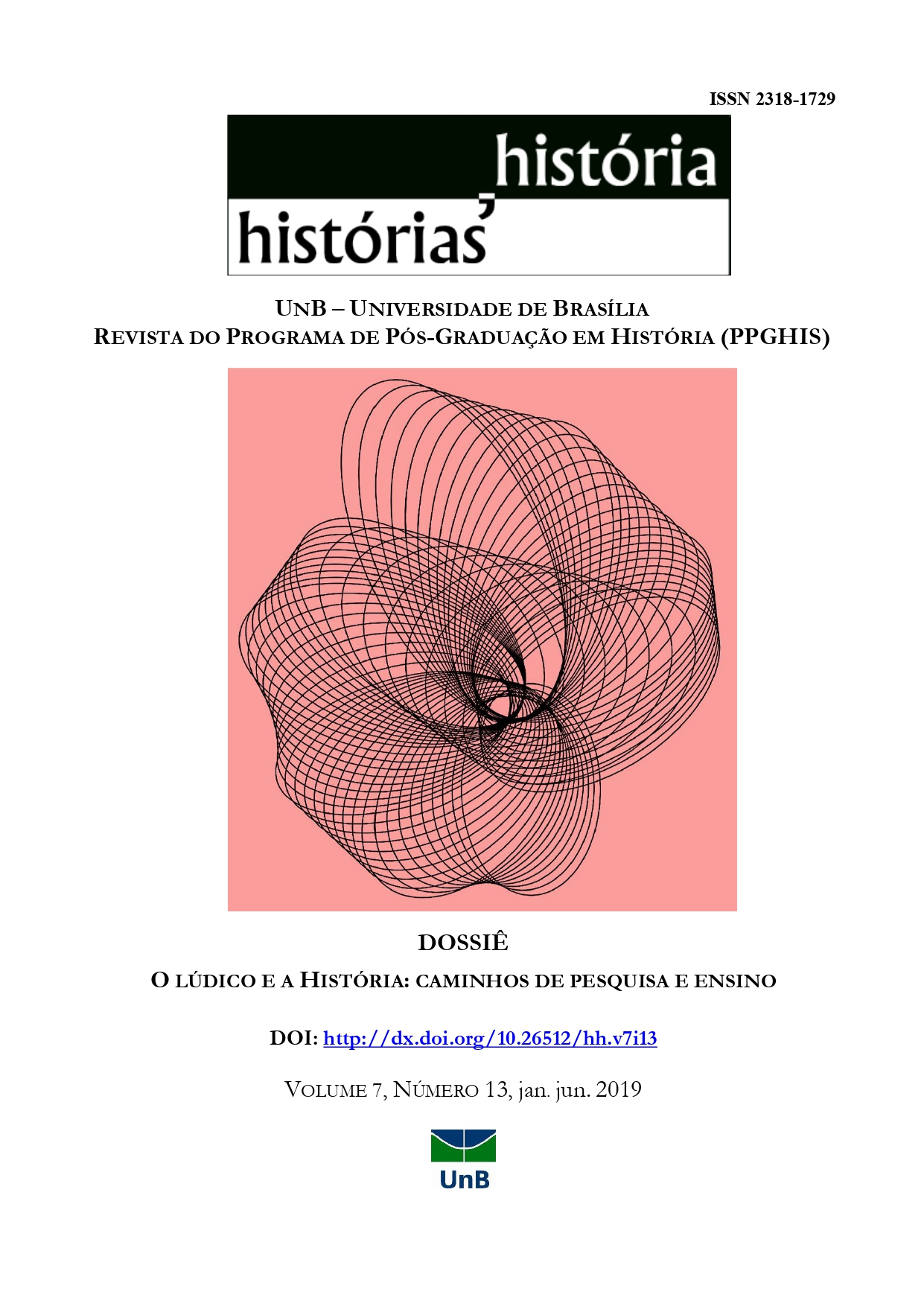Progredir ou perecer
modernidade, aceleração da história e etnocentrismo em Sid Meier’s Civilization
DOI:
https://doi.org/10.26512/hh.v7i13.19309Keywords:
Sid Meier's Civilization, Jogos, Aceleração da história, ModernidadeAbstract
This paper aims to analyze the first game in the Sid Meier’s Civilization videogame franchise, focusing on showing how the game’s representation of historical times is built on conceptions about “historical acceleration” that, according to Reinhart Koselleck, emerged only in modern times, but in the game are universal. At the same time, this analysis brings to light the question of ethnocentrism, considering how much the title is composed by ethnocentrically built perspectives on History that transform the Western historical experience into the only possible History. Besides interacting with Koselleck’s work, perspectives inspired on the field of game studies are also utilized, with the aim of considering the specificities of the media object chosen as the focus of investigation. It is particularly important the interaction with Gonzalo Frasca’s proposal of the videogame as a simulation and Ian Bogost’s discussion about the game’s capacity of creating procedural representations that are subjective and politically oriented.
Downloads
Downloads
Published
How to Cite
Issue
Section
License
Authors who submit papers with this journal agree to the following terms:
a) Authors retain copyright and grant the journal right of first publication with the work simultaneously licensed under a Creative Commons Attribution License that allows others to share the work with an acknowledgement of the work's authorship and initial publication in this journal.
b) Authors are able to enter into separate, additional contractual arrangements for the non-exclusive distribution of the journal's published version of the work (e.g., post it to an institutional repository or publish it in a book), with an acknowledgement of its initial publication in this journal.
c) Authors are permitted and encouraged to post their work online (e.g., in institutional repositories or on their website) prior to and during the submission process, as it can lead to productive exchanges, as well as earlier and greater citation of published work.




